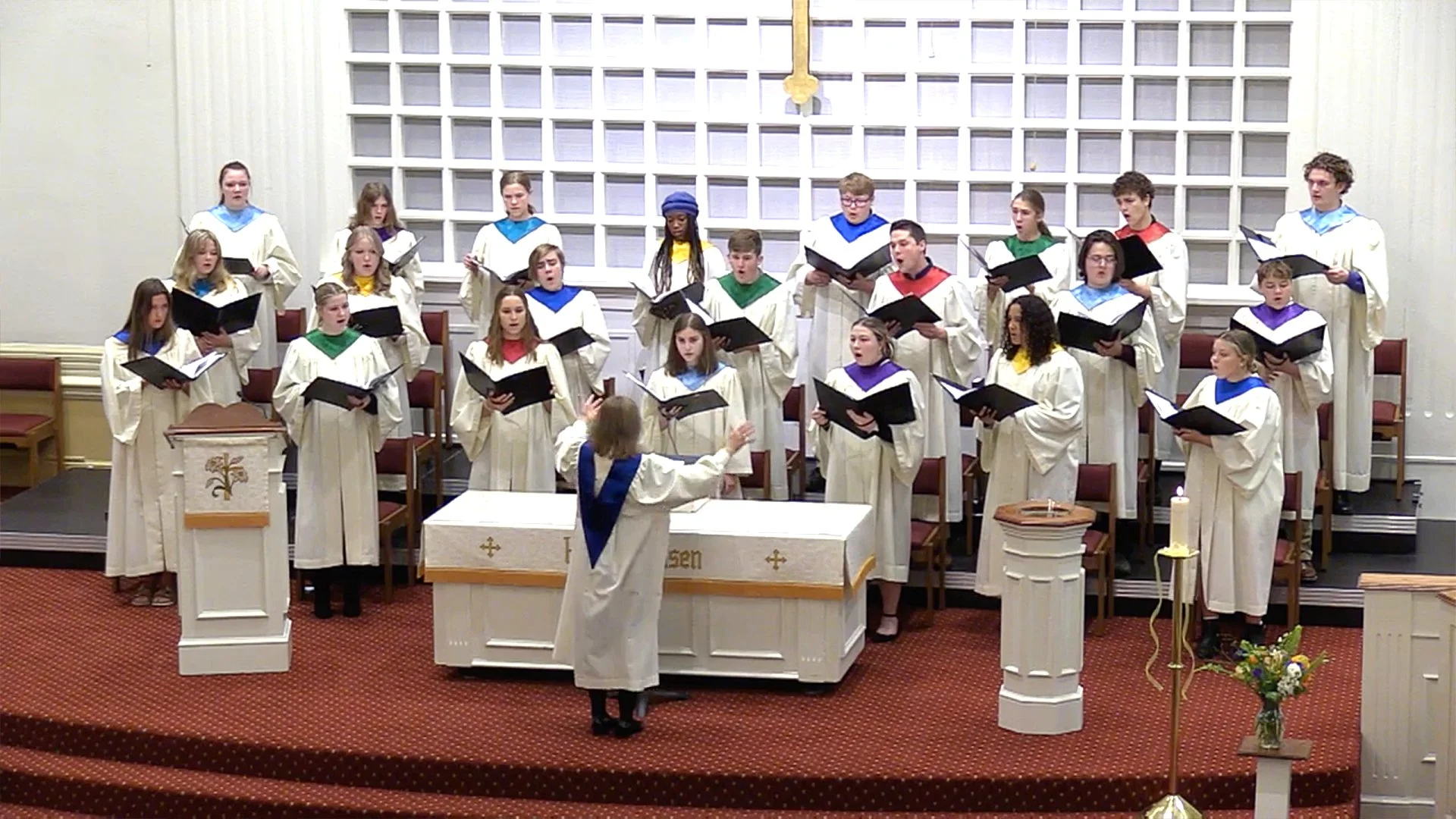Hymn of the Week: June 19, 2023
Praise My Soul, the King of Heaven
Glory to God: 620
Text Henry Francis Lyte (1793-1847). 1834
Music John Goss 1869
Praise, my soul, the King of heaven;
to his feet your tribute bring.
Ransomed, healed, restored, forgiven,
evermore his praises sing.
Alleluia, alleluia!
Praise the everlasting King!
Praise him for his grace and favor
to his people in distress.
Praise him, still the same as ever,
slow to chide, and swift to bless.
Alleluia, alleluia!
Glorious in his faithfulness!
Fatherlike he tends and spares us;
well our feeble frame he knows.
In his hand he gently bears us,
rescues us from all our foes.
Alleluia, alleluia!
Widely yet his mercy flows!
Verse often left out
Frail as summer’s flower we flourish,
Blows the wind and it is gone:
But while mortals rise and perish
God endures unchanging on.
Praise him, praise him,
Praise the high eternal one.
Angels, help us to adore him;
you behold him face to face.
Sun and moon, bow down before him,
dwellers all in time and space.
Alleluia, alleluia!
Praise with us the God of grace!
Todays Devotion
Lyte, Henry Francis, M.A.,
son of Captain Thomas Lyte, was born at Ednam, near Kelso, June 1, 1793, and educated at Portora (the Royal School of Enniskillen), and at Trinity College, Dublin, of which he was a Scholar, and where he graduated in 1814. During his University course he distinguished himself by gaining the English prize poem on three occasions. At one time he had intended studying Medicine; but this he abandoned for Theology, and took Holy Orders in 1815, his first curacy being in the neighborhood of Wexford. In 1817, he removed to Marazion, in Cornwall. There, in 1818, he underwent a great spiritual change, which shaped and influenced the whole of his afterlife, the immediate cause being the illness and death of a brother clergyman. Lyte says of him:—
“He died happy under the belief that though he had deeply erred, there was One whose death and sufferings would atone for his delinquencies, and be accepted for all that he had incurred;"
and concerning himself he adds:—
"I was greatly affected by the whole matter, and brought to look at life and its issue with a different eye than before, and I began to study my Bible, and preach in another manner than I had previously done."
From Marazion, he removed, in 1819, to Lymington, where he composed his Tales on the Lord's Prayer in verse (pub. in 1826); and in 1823 he was appointed Perpetual Curate of Lower Brixham, Devon. That appointment he held until his death, on Nov. 20, 1847. His Poems of Henry Vaughan, with a Memoir, were published in 1846.
Hymns and the Faith
The following is a paraphrase from Eric Routley’s book, Hymns and the Faith written in 1956.
“Praise, my soul” is at present the most popular, in the sense of being the hardest-worked, of English hymns. It finds a place in the repertoire of every kind of Christian gathering, from royal weddings to street corners. This seems to say that this hymn comes nearer to saying what we all want, just now, to say. Years such as those through which we have passed since, say, 1930 – so dramatically charged with trials and blessings, cause men to demand not the intimate and the exquisite but rather the objective, outward-looking hymns that speak of God and of his mighty works.
This hymn is a version of a Psalm, Psalm 103 in particular. What is the special quality of the 103rd Psalm? It is the most evangelical of the psalms; in it we see furthest into the New Testament, in it, God looks most like Christ.
Praise My Soul is everything we want a hymn to be. It speaks in simple language that conceals a quite unusual degree of skill and concentration. It speaks clearly but leaves much to the imagination. It has several arresting lines, yet the whole is homely enough for the edifying of the simplest and the comforting of the most distracted.
It has a quality of being all things to all people. This may stem from the fact that the text comes to us from a poet. The same poet who gave us the text, Abide With Me.
I invite you to pull out your Bible and do a side-by-side of the text with the actual 103rd Psalm. Here is an example of how Mr. Lyte captures in the first verse of the hymn several verses of the Psalm.
The text in the hymn states: Ransomed, healed, restored, forgiven.
Here is the Psalm text: Who forgiveth all thy iniquities: who health all thy diseases: who redeemeth thy life from destruction: who crowneth thee with loving kindness and tender mercies.
He concludes by asking, which of us can put their hand on their heart and declare they haven’t done something that God should have dealt more severely with them for? Yet, when we think of the God who created each beautiful day or Mt. Everest or the beauty discovered in a walk in nature or falling in love.
Quite literally the mind cannot bear thinking about all this and not help but anchor itself in the idea that God forgives and that the shape of life is determined by God’s forgiveness. Life is at each point new-fashioned by bis infinitely resourceful mercy.
That is what this hymn is singing about - mercy and love, the same yesterday, today, and forever.”
Enjoy these two contrasting interpretations showing us the still wide appeal of this timeless hymn.







